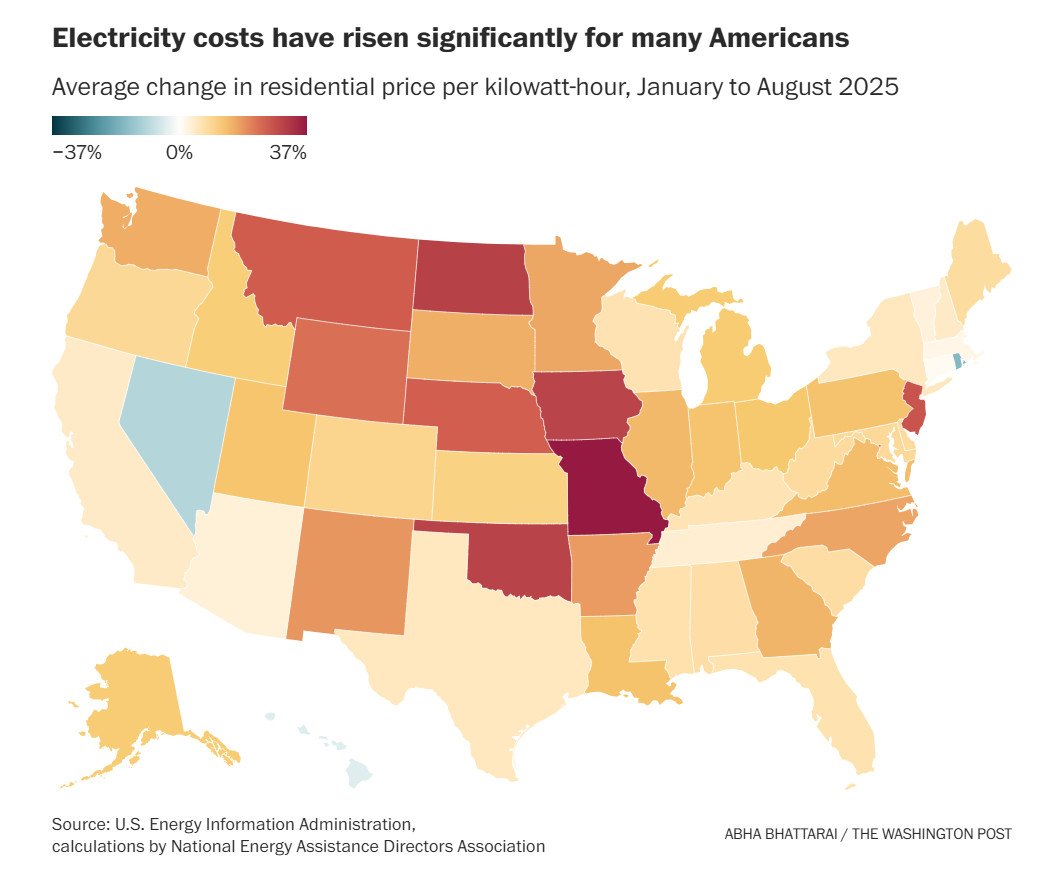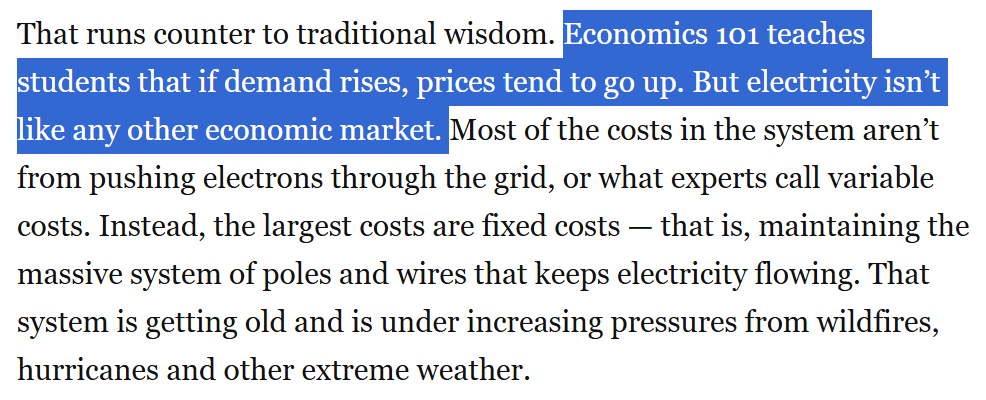This has been a rough week in DC, but maybe we need some #energytwitter nerd threads to distract us. Today: why economy-wide GHG pricing doesn't work for the transportation sector, absent complementary policies.
https://twitter.com/SeanCasten/status/1293905402686574592
1/ First, stipulate that "economy wide GHG pricing" is a supply/demand-set price per ton (or any other mechanism that treats all tons of GHG pollution as economically equivalent.)
2/ Suppose you buy a reciprocating engine to generate electricity. You run it 5 days/week, all year long, or 5x24x52 = 6,240 hours per year. When you make that investment, you plan on keeping it for 15 years before you have to replace it.
3/ Now suppose you also buy a reciprocating engine that in the form of your commuter vehicle (e.g., an IC engine). You have a 45 minute (each way) commute. You keep it for 15 years. That engine runs 45 minutes x 5 x 52 x 15 = 5,850 hours over the course of it's entire life.
4/ In other words, the same technology, but in one case used for power generation and in the other for transportation. In one mode you operate 6000 hours/yr, and in the other you operate it 6000 hours over 15 years.
5/ Since your fuel use is a function of operating hours (e.g., you don't burn gasoline while your car is in the garage), that means that fuel cost is ~15x as important to the investment thesis in a power plant as it is in a vehicle, all else equal.
6/ To put this in more personal terms: in the example above, if you average 35 mpg on your commute and get 27 mpg, you're spending $155/month on $4/gallon gas.
7/ I'll bet that's less than your monthly car + insurance payment. And note that if the price of gasoline moves by $1 / gallon, your differential cost is just $40/month.
8/ Which, by the way, is the same impact as a 25% change in fuel economy. The obvious implication being that in the (passenger) transpo sector, the economics of vehicle ownership are dominate by vehicle cost. In the heat & power sectors, the economics are dominated by fuel cost.
9/ Now let's bring that back to GHG pricing. GHG pricing, by definition is applied to the thing that emits greenhouse gases when burned - the fuel.
10/ Any price that is set at a high enough level to change the economics of the heat & power sectors & decarbonize will be too low to decarbonize transpo. And any price high enough for transpo will be way too high for H&P.
11/ Or, in economics parlance, the GHG price set in a supply/demand balanced paradigm will never clear at a high enough price to affect transportation economics.
12/ To be clear, we should - nay, MUST - put a price on GHG emissions. The point is just that decarbonizing the transportation sector will also require complementary policies that affect the price of the vehicle. I'm a big fan of feebates, personally: casten.house.gov/media/press-re…
13/ Another way to think of this for the financially inclined. How much more would you pay for a car that had zero fuel cost? e.g., in the example above, how much would you pay to save $150/month?
14/ If you are Homo Economicus rational and you are financing your car with a 7 year, 5% loan, you'd be willing to pay about $10,000 more for that car (since at anything above that level, your car payment increase > your fuel savings)
15/ Such a vehicle of course doesn't exist (Damn you thermodynamics!) but I think we can stipulate it would cost more than $10,000 more than Beck's current Hyundai.
16/ (Sorry for the obscure song reference - couldn't resist.) Point is, decarbonizing transportation requires policies to lower vehicle cost. Decarbonizing power and industrial sectors requires policies that price GHG emissions. /fin
Because there seems to be some confusion on this point. A $150/month car payment at 7 years would amortize a 5% loan. This is basic financial math, not a political statement on how much people should pay for fuel economy.
(Shorter version for those without any finance training: open Microsoft Excel on your computer. Click "help" and read up on the PMT function.)
• • •
Missing some Tweet in this thread? You can try to
force a refresh








